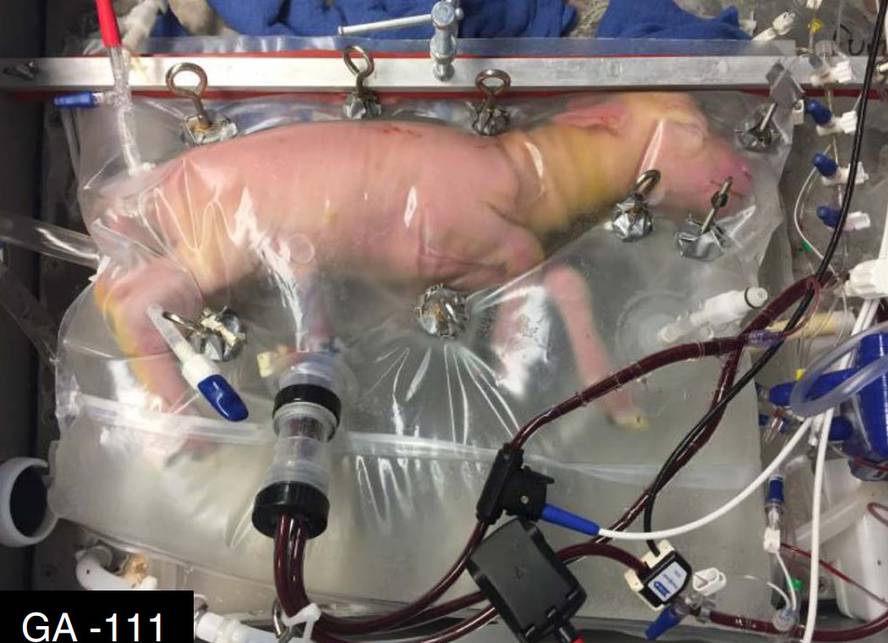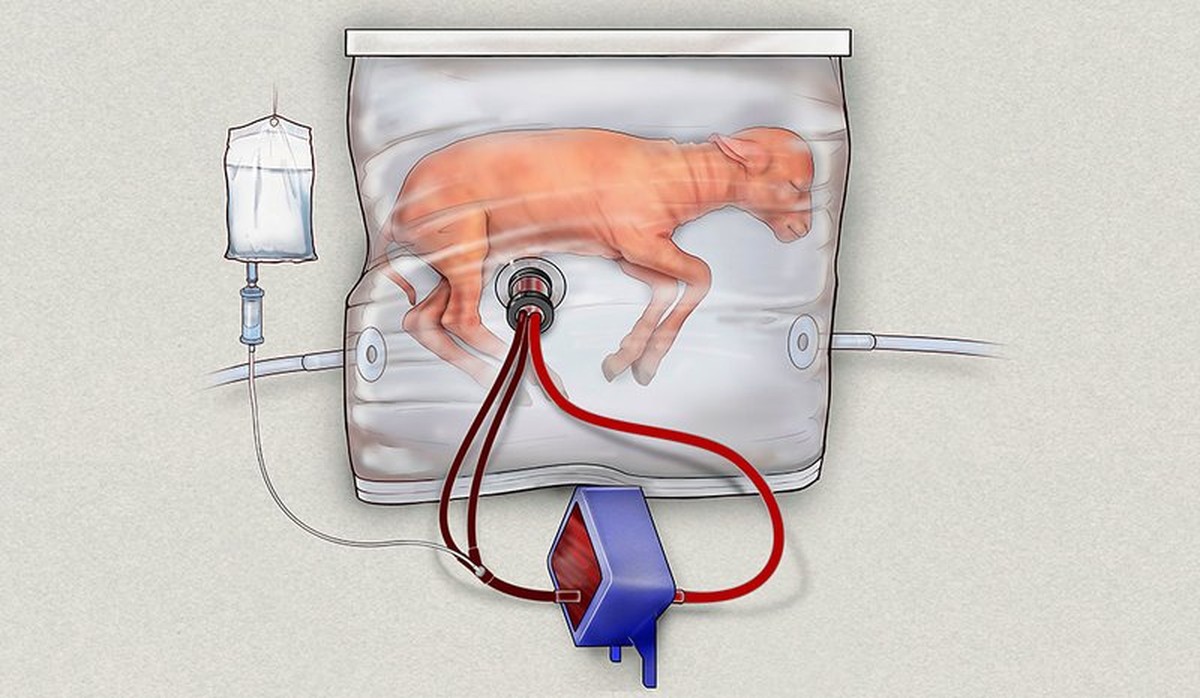Create an artificial uterus to complete the development of the fetus
Researchers at the Philadelphia Children's Hospital have created an artificial uterus that mimics the conditions of an authentic uterus. It is a closed bag, full of a fluid similar to the amniotic liquid and equipped with a system of contribution of oxygen and nutrients to the breeding. They have already tried it with very early lambs (like preterm children of 23-24 weeks) and have managed to live 28 days there. The researchers have stated that the organs of the lambs have continued to develop properly, as well as the lungs and brain.
In the case of preterm children, it is possible to survive and be born in the 22-23 weeks of gestation, with just 600 grams, but the development of the organs is so critical at that age (especially of lung and brain), that at birth they suffer chronic lung diseases and other complications. For this reason, researchers look for a system more similar to that of the uterus than incubators, for example, so that children do not have to breathe air in the early stages of development, when their lungs are not yet ready. If a certain artificial uterus was achieved for use with children, this time would be delayed for one month, thus exceeding the limit of the most serious damage. For the moment, they have only tested with lambs.
For many years they have been looking for an artificial uterus and so far the results have been scarce. In this artificial uterus they have developed, the blood comes to the lamb through a synthetic lamb. But it has no pumping system of the blood circulation, since the heart of the lambs would not yet endure an external circulation system. That is why it is the lamb who, through his heart, takes the ingredients he needs. In the trials carried out to date, without pumping system, the lambs suffered brain damage that did not exceed 60 hours. But this time they have survived for almost a month.
On the other hand, the artificial uterus does not have ventilation systems either, since the lungs of the lambs cannot breathe air. As in the uterus, the lamb is immersed in this fluid similar to the amniotic fluid in which they exchange oxygen and carbon dioxide.
According to the researchers, the development of this artificial uterus has been a great breakthrough, but it has been recognized as far from human use. On the one hand, it would have to develop a fluid similar to the amniotic fluid of the human being, and they have affirmed that the union of the system with the cord can be more difficult than in the lambs.
The research has been published in the journal Nature Communications.







